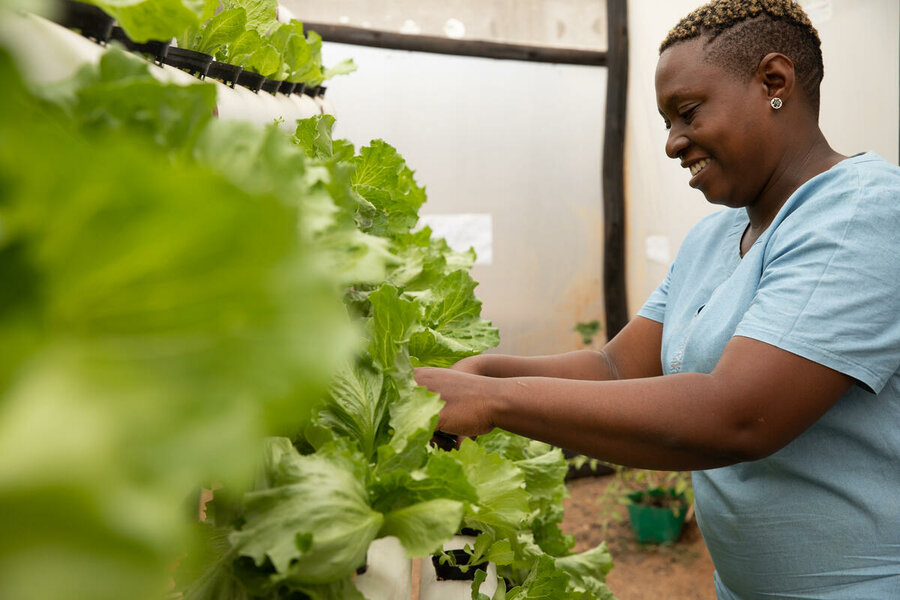
The world is facing the climate crisis. For tens of millions of people, a warmer planet means more frequent and intensive floods, droughts, massive storms and heatwaves that can devastate entire livelihoods and vital ecosystems.
Helping people and communities adapt to a changing climate has a critical role in advancing the World Food Programme's global mission to end hunger.
Climate action requires continuous innovation and adaptation. Through its Munich-based WFP Innovation Accelerator, WFP promotes innovative solutions that can disrupt hunger and speed up impact across a number of the UN's Sustainable Development Goals.
This year's WFP Innovation Challenge specifically aimed to strengthen our support for startups and innovations that drive climate adaptation and build long-term resilience. Through a global call launched in June, we identified eight climate innovation projects that will soon start their journey with WFP.
At the Accelerator, we are in a unique position to connect startups with humanitarian and development operations to provide deep contextual knowledge that gives them the highest chance of success and scale.
At COP27, WFP will showcase disruptive solutions for climate action at an event titled Disrupt hunger - innovating for people and planet on 17 November. The event will highlight the opportunity to progress towards a climate-resilient future through innovation and public-private collaboration. Here's a taste of some of our innovations that contribute to climate adaptation and resilience.
Post-harvest technologies for resilient food systems
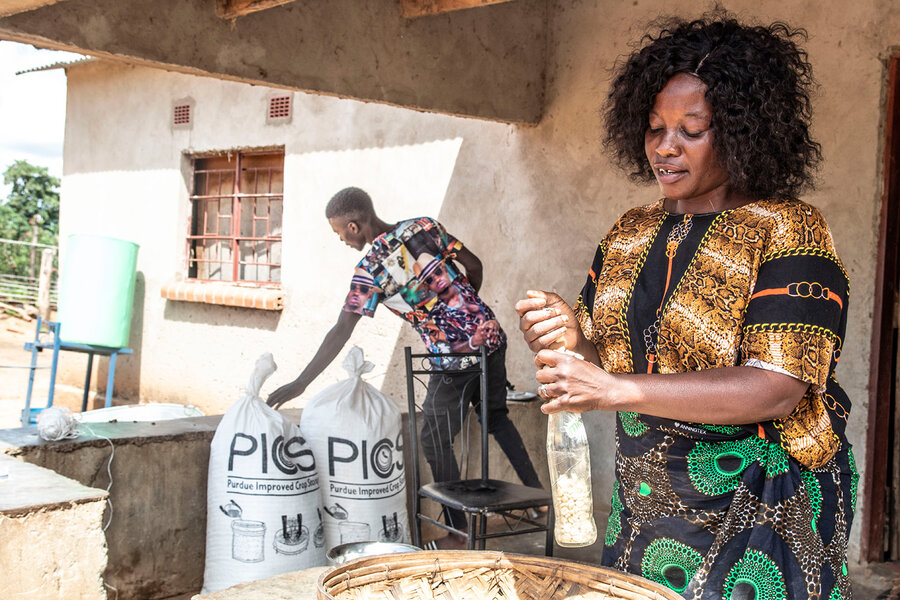
To mitigate the impacts of climate change on agricultural production and supply chains, the WFP PHL Venture supports farmers in implementing innovative business models to increase the adoption of post-harvest loss (PHL) technologies.
One proven PHL solution is the hermetic bag, which allows food to be stored for longer so farmers can sell outside crop harvest periods. This adaptation practice reduces losses dramatically and enables farmers to have more predictable incomes.
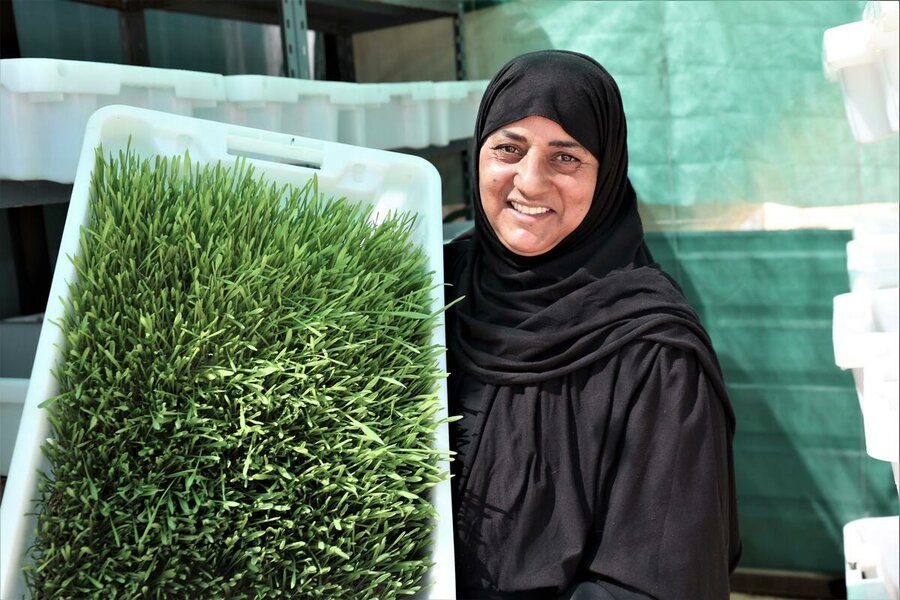
Hydroponics for growing food in impossible places
WFP's hydroponic initiative, H2Grow, brings locally adaptable and affordable climate-smart hydroponic units to food-insecure communities facing the challenges of dry terrain. Now food grows even in the harshest conditions - deep in the Sahara desert - because the technique uses 90 percent less water and zero soil. Its impact is far-reaching, enabling people in 21 countries to grow fresh food or animal feed and provide for themselves.
A waste-to-fuel solution to prevent air pollution
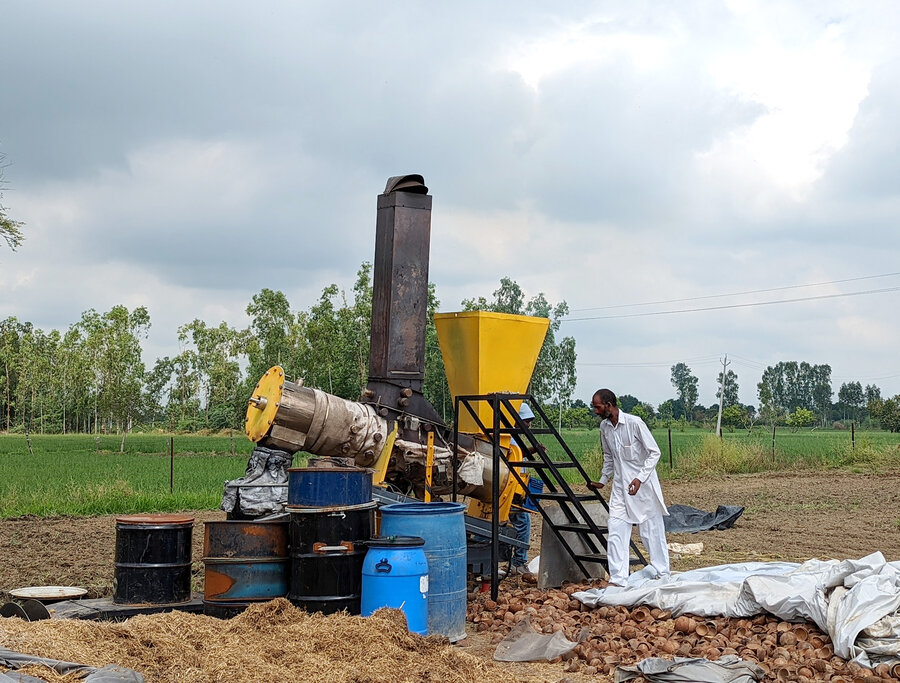
Many farmers burn crop residues in the open air to eliminate waste from harvest, causing air pollution. Takachar, an award-winning company achieving impact in WFP's Sprint Programme in India, offers an innovative technology to address this problem. It deploys small-scale, portable processing units in farms to convert waste into sellable bioproducts like fuel and fertilizer. As well as increasing farmers' income by up to 40 percent, if scaled, this technology could reduce carbon dioxide emissions by a billion tonnes a year.
Risk management for stable livelihoods
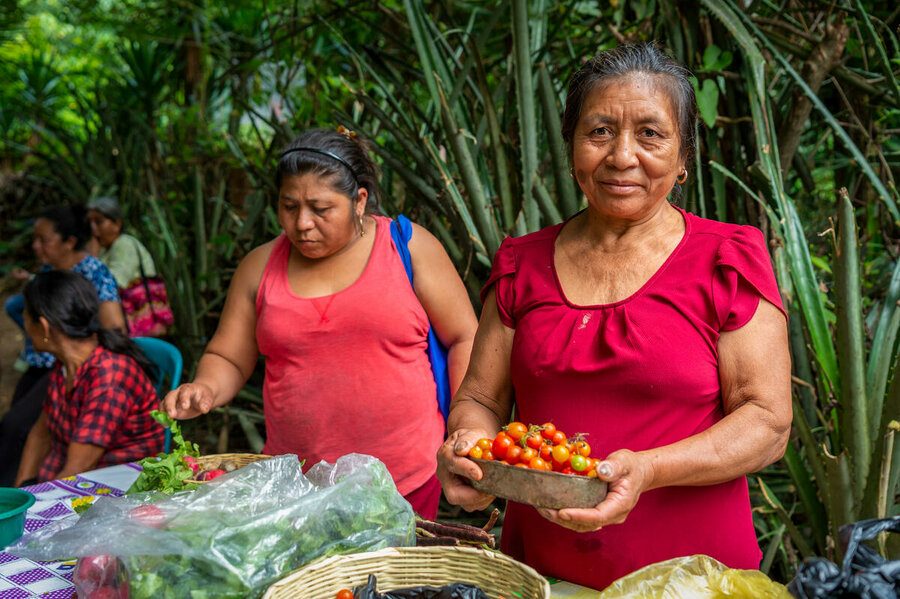
The pandemic has taught us that while we can't predict the future, innovation can help ensure continuity amid disruption and uncertainty. WFP's R4 Rural Resilience Initiative embraces this principle.
The initiative supports smallholder farmers to adopt four risk-management approaches: improved resource management (risk reduction); access to insurance (risk transfer); investment, livelihood diversification and microcredit (prudent risk taking); and savings (risk retention). These integrated '4 Rs' boost food and income security and build resilience to climate risks.
Innovating today for a better tomorrow
Climate change has created an enormous incentive to bolster innovation and global cooperation. We need to continue engaging with governments and the private sector to mobilize resources and knowledge for addressing the climate crisis and promoting food security. There's a long way to go, but we must keep the momentum going for people and the planet.
We are grateful for the dedicated support of our multi-year partners: the German Ministry for Economic Cooperation and Development (BMZ), the German Federal Foreign Office (GFFO), the Bavarian State Ministry of Food, Agriculture and Forestry, Luxembourg, the Netherlands and USAID, as well as the Austrian Development Agency, BASF Stiftung, Bill and Melinda Gates Foundation, Czech Republic, France, GIZ, Innovation Norway and John Deere Foundation. With less than a decade left to accomplish the SDGs, we must pool our resources and co-create a better future for everyone, one innovation at a time.






